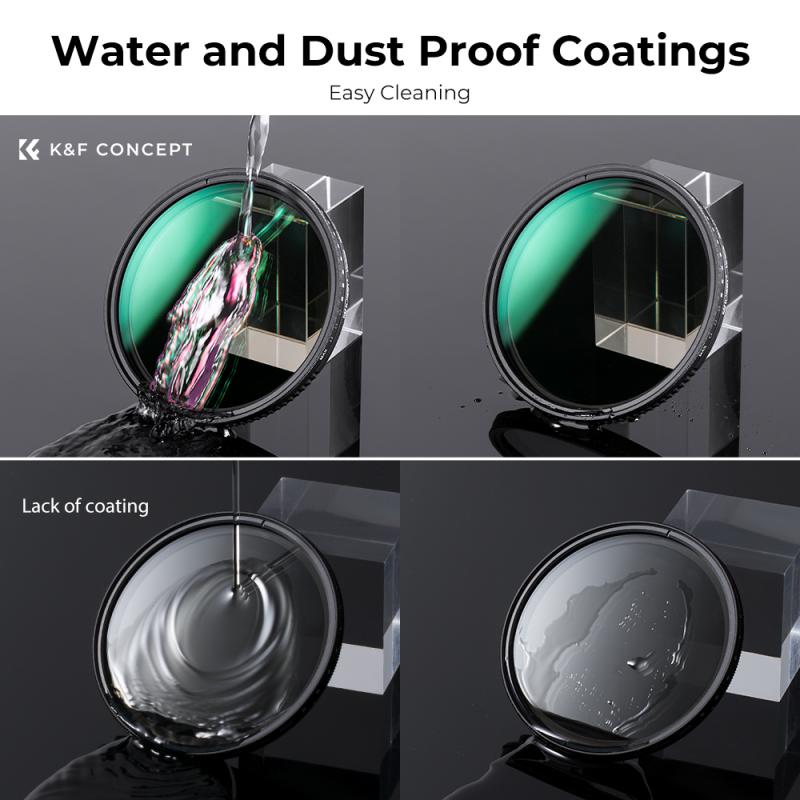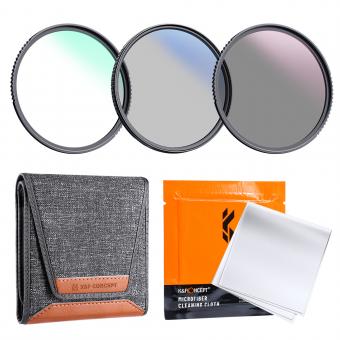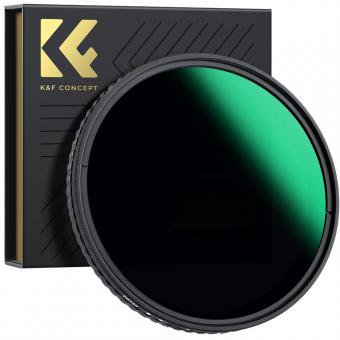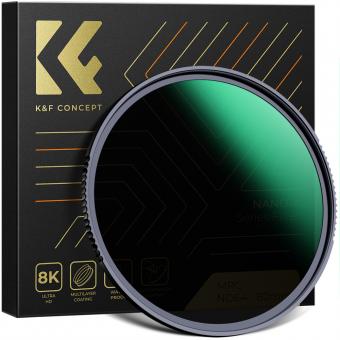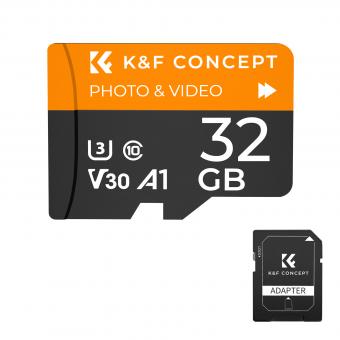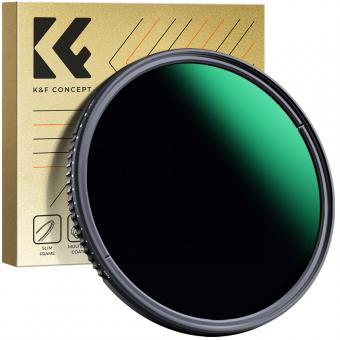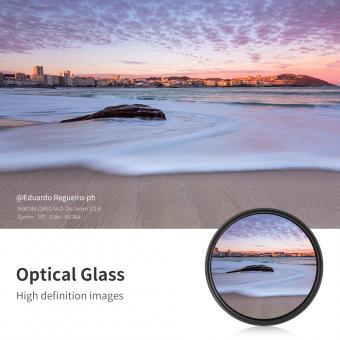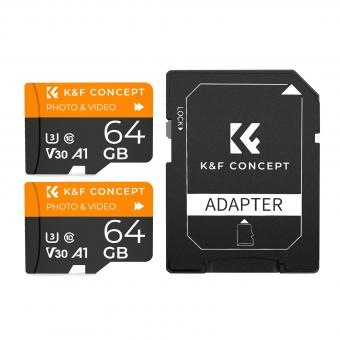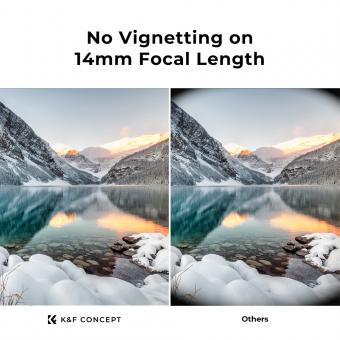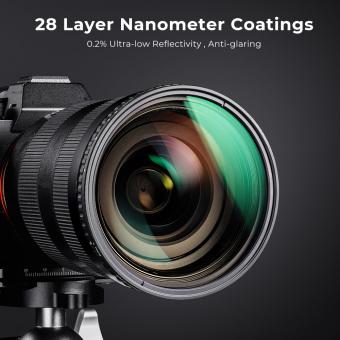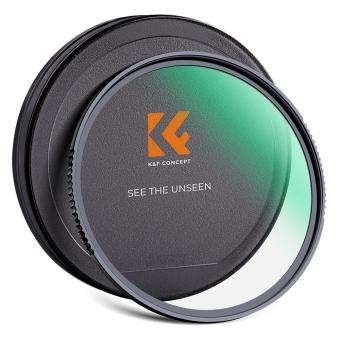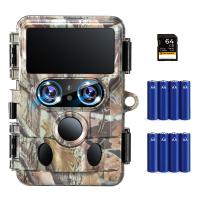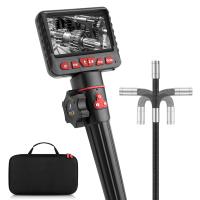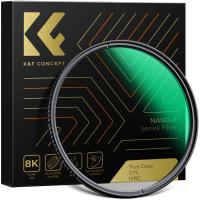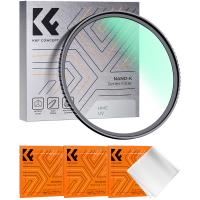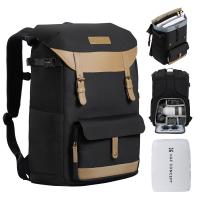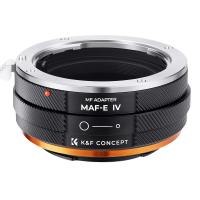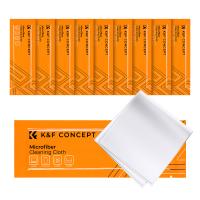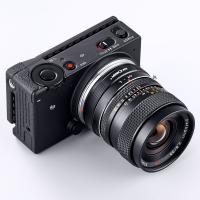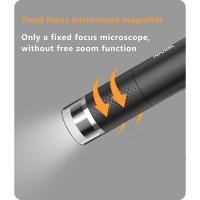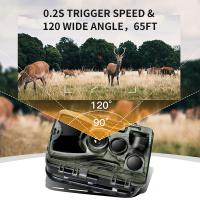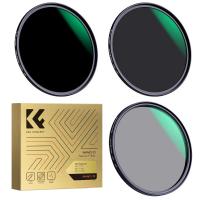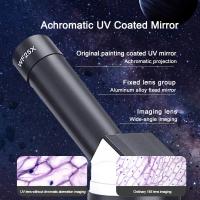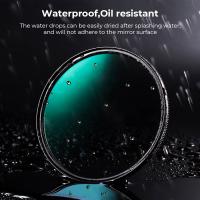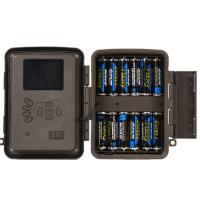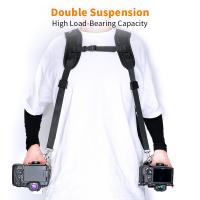Who Makes The Best Lens Filters ?
There are several reputable companies that manufacture high-quality lens filters, including B+W, Hoya, Tiffen, and Lee Filters. The "best" lens filter brand can vary depending on individual preferences and specific needs. It is recommended to consider factors such as the intended use, desired effect, budget, and compatibility with your camera and lenses when choosing a lens filter.
1、 Top lens filter brands for professional photography
When it comes to lens filters for professional photography, there are several top brands that are highly regarded in the industry. These brands have consistently delivered high-quality filters that meet the demands of professional photographers. While opinions may vary, here are some of the top lens filter brands that are often recommended:
1. B+W: B+W filters are known for their exceptional optical quality and durability. They offer a wide range of filters, including UV, polarizing, and neutral density filters, all of which are highly regarded by professionals.
2. Hoya: Hoya filters are known for their excellent build quality and optical performance. They offer a variety of filters, including UV, polarizing, and specialty filters like infrared and color correction filters.
3. Tiffen: Tiffen filters are widely used by professionals and are known for their high-quality construction and optical performance. They offer a wide range of filters, including UV, polarizing, and neutral density filters.
4. Lee Filters: Lee Filters is a popular choice among landscape photographers. They are known for their high-quality resin filters, including graduated neutral density filters, which help balance exposure in challenging lighting conditions.
5. Singh-Ray: Singh-Ray filters are highly regarded for their exceptional optical quality. They offer a range of filters, including polarizing, neutral density, and specialty filters like reverse graduated neutral density filters.
It's important to note that the "best" lens filter brand may vary depending on individual preferences and specific photography needs. It's always recommended to do thorough research, read reviews, and consider your specific requirements before investing in lens filters. Additionally, new brands and technologies may emerge in the market, so it's worth staying updated with the latest developments in the industry.
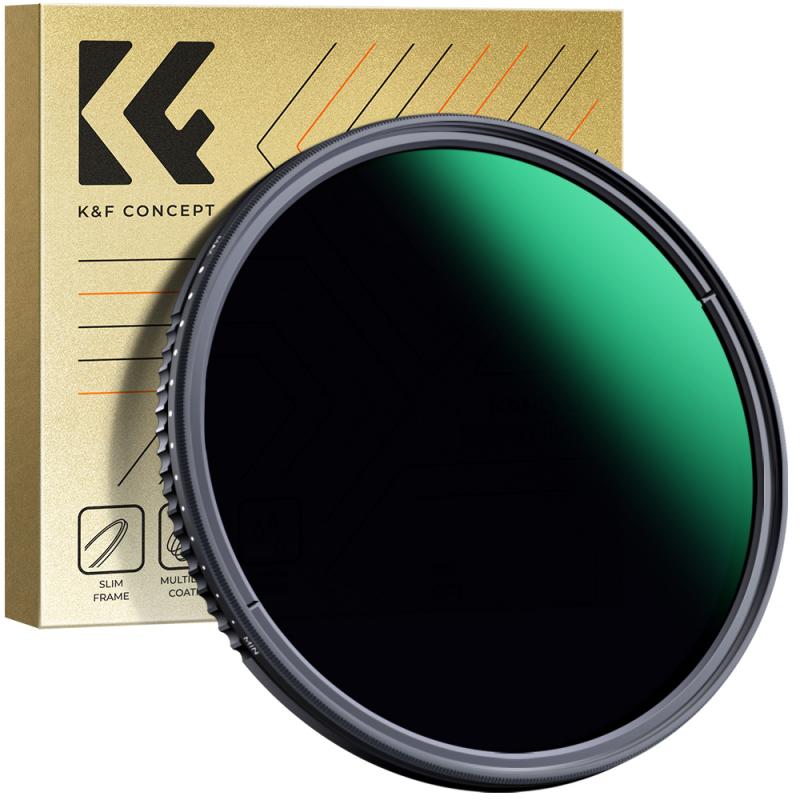
2、 High-quality lens filters for landscape photography
When it comes to high-quality lens filters for landscape photography, there are several reputable brands that are known for producing exceptional products. While opinions may vary, some of the top contenders in the market include B+W, Lee Filters, Hoya, and Singh-Ray.
B+W, a subsidiary of Schneider Optics, is renowned for its precision-engineered filters. Their filters are made with high-quality glass and feature multi-resistant coatings to minimize reflections and flare. B+W filters are known for their excellent color neutrality and durability, making them a popular choice among landscape photographers.
Lee Filters is another brand that is highly regarded in the industry. They offer a wide range of filters, including graduated neutral density filters that are particularly useful for landscape photography. Lee Filters are known for their exceptional optical quality and are often favored by professionals for their accuracy and reliability.
Hoya is a well-established brand that offers a diverse range of lens filters. Their filters are known for their excellent optical performance and durability. Hoya filters are often praised for their affordability without compromising on quality, making them a popular choice among photographers.
Singh-Ray is a brand that is highly regarded for its specialty filters. They offer unique filters such as the polarizing and neutral density filters that are specifically designed for landscape photography. Singh-Ray filters are known for their exceptional color accuracy and are often favored by professionals for their superior image quality.
It is important to note that the "best" lens filter ultimately depends on individual preferences and specific shooting requirements. It is recommended to research and read reviews to find the filter that best suits your needs. Additionally, advancements in technology and new product releases may influence the latest point of view on the best lens filters, so staying updated with the latest developments in the market is always beneficial.
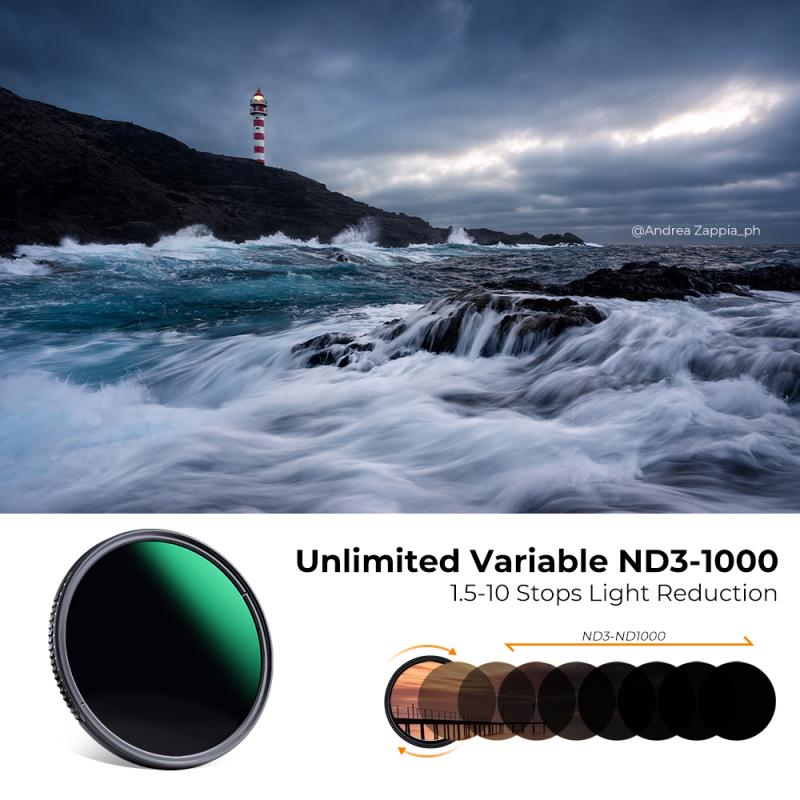
3、 Best lens filters for creative effects and long exposures
When it comes to lens filters for creative effects and long exposures, there are several reputable brands that offer high-quality options. While it is subjective to determine who makes the absolute best lens filters, there are a few brands that consistently receive positive reviews and are popular among photographers.
One such brand is Lee Filters. Known for their exceptional quality and wide range of filter options, Lee Filters is a favorite among landscape photographers. Their Big Stopper and Little Stopper filters are particularly renowned for their ability to create stunning long exposure images by reducing the amount of light entering the lens. Lee Filters also offers a variety of creative effect filters, such as the ProGlass IRND range, which allows photographers to achieve unique and artistic results.
Another notable brand is B+W (Schneider Kreuznach). B+W filters are highly regarded for their excellent optical quality and durability. Their ND filters, such as the ND110 and ND1000, are popular choices for long exposures, as they effectively reduce the amount of light without compromising image quality. B+W also offers a range of creative effect filters, including polarizers and graduated neutral density filters, which allow photographers to enhance their images and achieve desired effects.
In recent years, breakthrough brands like NiSi and Formatt-Hitech have gained recognition for their innovative filter systems. NiSi filters are known for their exceptional color neutrality and high-quality glass, while Formatt-Hitech offers a wide range of filters, including their popular Firecrest line, which provides excellent light control and color accuracy.
Ultimately, the choice of the best lens filters for creative effects and long exposures depends on individual preferences and specific requirements. It is recommended to research and read reviews to find the filters that best suit your needs and budget.
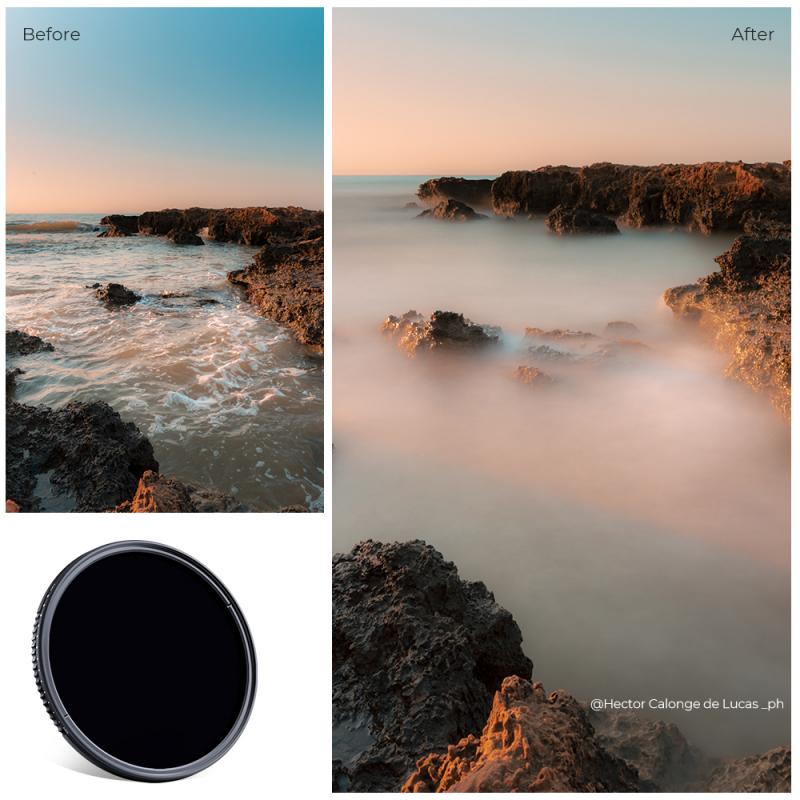
4、 Lens filters for videography and cinematography purposes
When it comes to lens filters for videography and cinematography purposes, there are several reputable brands that are known for producing high-quality filters. However, determining the "best" brand ultimately depends on individual preferences and specific requirements.
One of the most well-regarded brands in the industry is Schneider Optics. They offer a wide range of filters specifically designed for videography and cinematography, including neutral density (ND) filters, polarizers, and diffusion filters. Schneider Optics filters are known for their exceptional optical quality and durability, making them a popular choice among professionals.
Another notable brand is Tiffen. Tiffen filters have been widely used in the film industry for decades and are known for their consistent performance and reliability. They offer a comprehensive range of filters, including ND filters, polarizers, and color correction filters, catering to the diverse needs of videographers and cinematographers.
In recent years, companies like Formatt-Hitech and Breakthrough Photography have gained recognition for their innovative filter designs and high-quality optics. Formatt-Hitech offers a range of filters, including ND, polarizers, and graduated filters, while Breakthrough Photography specializes in high-end ND and polarizing filters.
It's worth noting that the "best" lens filter brand can vary depending on the specific requirements of a project. Some videographers may prioritize color accuracy and optical quality, while others may prioritize durability and ease of use. Therefore, it is essential to consider individual needs and preferences when selecting lens filters for videography and cinematography purposes.
